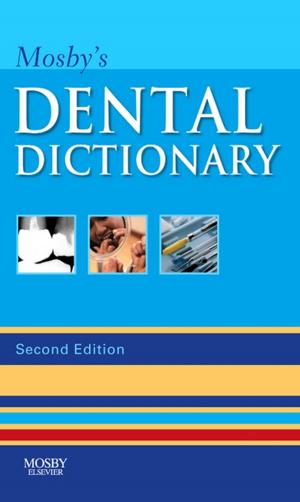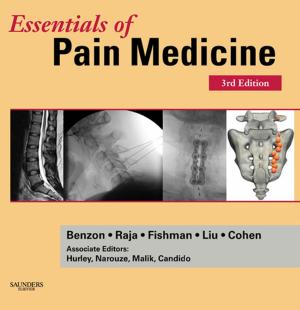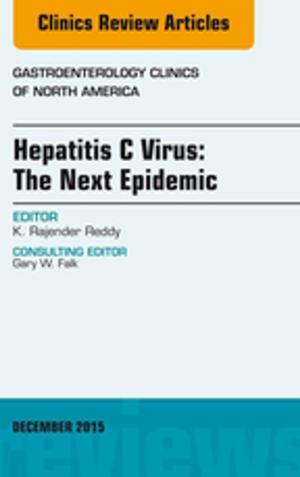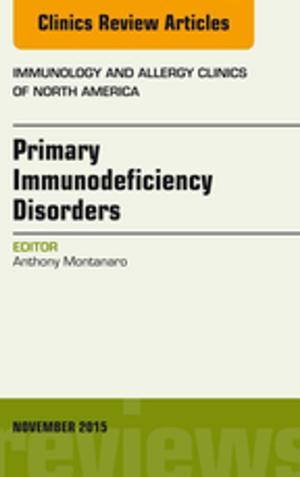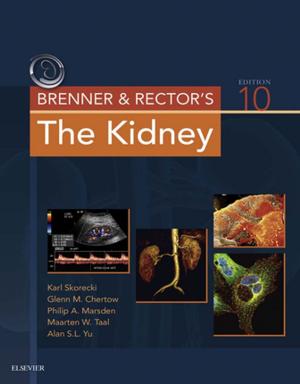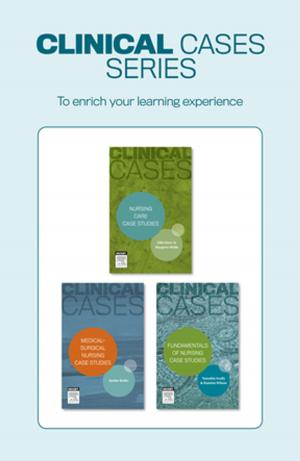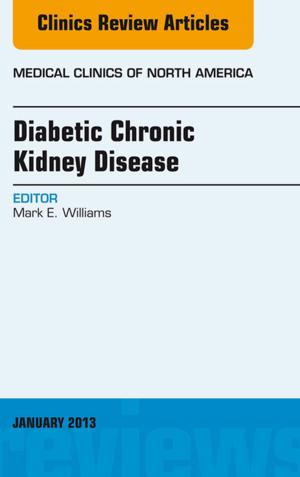Henry's Clinical Diagnosis and Management by Laboratory Methods E-Book
Nonfiction, Health & Well Being, Medical, Specialties, Pathology| Author: | Richard A. McPherson, MD, MSc, Matthew R. Pincus, MD, PhD | ISBN: | 9781455726844 |
| Publisher: | Elsevier Health Sciences | Publication: | September 6, 2011 |
| Imprint: | Saunders | Language: | English |
| Author: | Richard A. McPherson, MD, MSc, Matthew R. Pincus, MD, PhD |
| ISBN: | 9781455726844 |
| Publisher: | Elsevier Health Sciences |
| Publication: | September 6, 2011 |
| Imprint: | Saunders |
| Language: | English |
Recognized as the definitive book in laboratory medicine since 1908, Henry’s Clinical Diagnosis and Management by Laboratory Methods, edited by Richard A. McPherson, MD and Matthew R. Pincus, MD, PhD, is a comprehensive, multidisciplinary pathology reference that gives you state-of-the-art guidance on lab test selection and interpretation of results. Revisions throughout keep you current on the latest topics in the field, such as biochemical markers of bone metabolism, clinical enzymology, pharmacogenomics, and more! A user-friendly full-color layout puts all the latest, most essential knowledge at your fingertips.
-
Update your understanding of the scientific foundation and clinical application of today's complete range of laboratory tests.
-
Get optimal test results with guidance on error detection, correction, and prevention as well as cost-effective test selection.
-
Reference the information you need quickly and easily thanks to a full-color layout, many new color illustrations and visual aids, and an organization by organ system.
-
Master all the latest approaches in clinical laboratory medicine with new and updated coverage of:
-
the chemical basis for analyte assays and common interferences;
-
lipids and dyslipoproteinemia;
-
markers in the blood for cardiac injury evaluation and related stroke disorders;
-
coagulation testing for antiplatelet drugs such as aspirin and clopidogrel;
-
biochemical markers of bone metabolism;
-
clinical enzymology;
-
hematology and transfusion medicine;
-
medical microbiology;
-
body fluid analysis;
-
and many other rapidly evolving frontiers in the field.
-
Effectively monitor the pace of drug clearing in patients undergoing pharmacogenomic treatments with a new chapter on this groundbreaking new area.
-
Apply the latest best practices in clinical laboratory management with special chapters on organization, work flow, quality control, interpretation of results, informatics, financial management, and establishing a molecular diagnostics laboratory.
-
Confidently prepare for the upcoming recertification exams for clinical pathologists set to begin in 2016.
Recognized as the definitive book in laboratory medicine since 1908, Henry’s Clinical Diagnosis and Management by Laboratory Methods, edited by Richard A. McPherson, MD and Matthew R. Pincus, MD, PhD, is a comprehensive, multidisciplinary pathology reference that gives you state-of-the-art guidance on lab test selection and interpretation of results. Revisions throughout keep you current on the latest topics in the field, such as biochemical markers of bone metabolism, clinical enzymology, pharmacogenomics, and more! A user-friendly full-color layout puts all the latest, most essential knowledge at your fingertips.
-
Update your understanding of the scientific foundation and clinical application of today's complete range of laboratory tests.
-
Get optimal test results with guidance on error detection, correction, and prevention as well as cost-effective test selection.
-
Reference the information you need quickly and easily thanks to a full-color layout, many new color illustrations and visual aids, and an organization by organ system.
-
Master all the latest approaches in clinical laboratory medicine with new and updated coverage of:
-
the chemical basis for analyte assays and common interferences;
-
lipids and dyslipoproteinemia;
-
markers in the blood for cardiac injury evaluation and related stroke disorders;
-
coagulation testing for antiplatelet drugs such as aspirin and clopidogrel;
-
biochemical markers of bone metabolism;
-
clinical enzymology;
-
hematology and transfusion medicine;
-
medical microbiology;
-
body fluid analysis;
-
and many other rapidly evolving frontiers in the field.
-
Effectively monitor the pace of drug clearing in patients undergoing pharmacogenomic treatments with a new chapter on this groundbreaking new area.
-
Apply the latest best practices in clinical laboratory management with special chapters on organization, work flow, quality control, interpretation of results, informatics, financial management, and establishing a molecular diagnostics laboratory.
-
Confidently prepare for the upcoming recertification exams for clinical pathologists set to begin in 2016.


